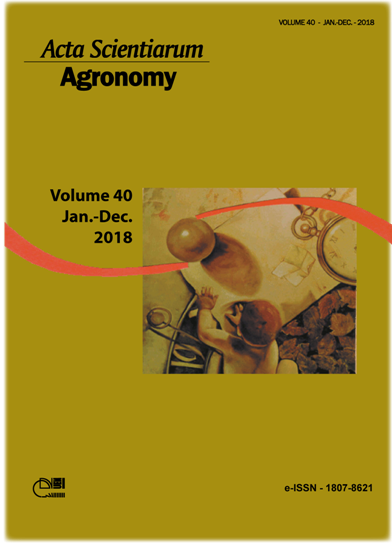<b>Evaluation of grain sorghum hybrids for aluminum tolerance in nutrient solution
Abstract
Sorghum (Sorghum bicolor L. Moench) is one of the most important cereal crops in the world. In Brazil, the acreage of grain sorghum during off-season is quite expansive. Most of this area is the Cerrado, a Brazilian biome that is similar to a Savannah and is characterized by high acidity and soluble aluminum at toxic levels for plants. The aluminum acts as a limiting factor in achieving high yields. The purpose of this work was to phenotype sorghum hybrids for aluminum tolerance. Eighteen hybrids were evaluated in a nutrient solution containing {0} or {27} µM Al3+. The work was carried out in a growth chamber at the Embrapa Maize and Sorghum, from April 4 to May 30, 2014. The lines ATF 13B (susceptible) and ATF 14B (tolerant) were used as check cultivars. Based on the Net Root Growth after 120 hours (NRG120), Net Root Growth (NRG168) after 168 hours and Relative Net Root Growth after 168 hours (RNRG168), it was possible to distinguish tolerant hybrids from susceptible ones. The high aluminum saturation reduced root growth by 70%. The hybrids BRS 310 and BRS 373 were tolerant to aluminum stress under nutrient solution. The hybrid BRS 330 was clustered in an intermediate group, with an approximately 50% root growth reduction. The other hybrids were susceptible with significant root reduction.
Downloads
DECLARATION OF ORIGINALITY AND COPYRIGHTS
I Declare that current article is original and has not been submitted for publication, in part or in whole, to any other national or international journal.
The copyrights belong exclusively to the authors. Published content is licensed under Creative Commons Attribution 4.0 (CC BY 4.0) guidelines, which allows sharing (copy and distribution of the material in any medium or format) and adaptation (remix, transform, and build upon the material) for any purpose, even commercially, under the terms of attribution.





















































